If you are inclined to self-publish, I have absolutely no problems with that. But if you are working without an editor, I think you are making a mistake.
The truth is, no book goes from first written word to printed word as the work of one person. There are always other people involved, even if it’s your best friend who reads the manuscript. A major publisher once told me that it took about forty people to produce a book. But after the writer, the key player should be an editor.
The essential point is you need an outside reader to, well, read your work and see if it makes sense.
Kid writers, when explaining their work, often say, “Well, I know what it means.”
It’s not enough for the writer to know what it means. A reader must know what it means.
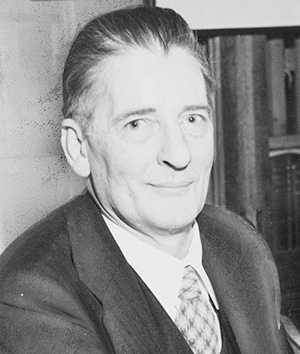
The modern way editors work was, in many ways, defined by Scribner editor Maxwell Perkins (1884–1947), who discovered and edited writers like Fitzgerald, Hemingway, Thomas Wolfe, Rawlings, and James Jones.
“He helped [writers] structure their books … thought up titles, invented plots; he served as psychoanalyst, lovelorn advisor, marriage counselor, career manager, moneylender. Few editors before him had done so much work on manuscripts, yet he was always faithful to his credo, ‘The book belongs to the author.’” [Literary Hub, June 2016, by A. Scott Berg]
Having more than eighty publications with my name on them, as you might guess, I have worked with many editors. My very first book, Things that Sometimes Happen, had something like four editors, as one after the other they left the contracted publisher to go to other publishers.
When I worked with the late, great Fabio Cohen, and he took on the first of a number of my books (that first one eventually becoming The End of the Beginning), and I asked him what rewriting he thought that work needed, to my astonishment, he replied, “You need about eight adjectives.” He was right.
Getting to the right editor for a particular book can be complicated. My Newbery book (Crispin) was submitted to editor A, who accepted the book and then changed her mind about working on it. Instead, she swapped it out for another book I had written.
Meanwhile, the Crispin manuscript went to a new publisher and editor, who took it on, and then almost immediately left that company to work elsewhere. That meant (since a contract had been signed) the Crispin manuscript was assigned to an entirely new editor, someone I knew nothing about.
That editor guided the book to the Newbery. To be sure, she was not satisfied with the beginning of the book. I must have rewritten it fifteen times.
A bad editor tries to shape your work to their vision of the text.
[To be honest, they may even be right, but to accept it blindly means it becomes their book, not yours.]
I once told an editor of a book I was working on that “It reads like junk.” The reply, “I don’t publish junk.” I went back to work, and Wolf Rider has been in print for almost forty years.
The rapport and trust you develop with an editor have everything to do with the outcome. I once stopped working with a particular editor when she said, “You’ve done everything I asked you to do with the manuscript, but it’s not good.”
Or, another editor turned down a book with the comment, “Not enough salt.”
An editor once accepted a book of mine but subsequently changed her mind and said she would not publish it. “Is there anything good about it?” I asked. The reply: “You can keep the title.”
A good editor guides you to the fullest realization of the book that you are writing. It is always a work in progress. Therefore, one of the key qualities to look for in an editor is clarity in how they can articulate their expectations and suggestions. That’s why I make it a point never to argue about an editor’s suggestions. Even if I disagree, I try to do what’s recommended and then make my own decision regarding what to do. More often than not, they are right.
When you are in sync with an editor, the progress a book makes can be both exhilarating and deeply satisfying. Richard Jackson, with whom I worked for many years, had a way of calling me after we had mutually agreed that a book was done. “I’ve been thinking,” he would say, and suggest something important he had noticed that we had overlooked. He had not stopped thinking about the book. That afterthought always made the book better.
Editors are often notoriously overworked, so developing patience can be a key component in running with your editor of choice. “She held my manuscript for a year before ever even commenting on it,” a highly successful writer once shared with me.
That’s not the only time I have heard those words.
I had an editor whom I thought was quite wonderful, only to have her retire. But I thought so much of her critiques that I sought her out, and every now and again I still ask her to read a manuscript to help me untangle a problematic text.
Writing a book is hard. Working with a good editor makes it doable, exciting, and deeply fulfilling.
And readers will be able to read and enjoy it.
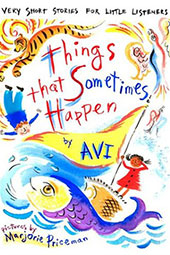
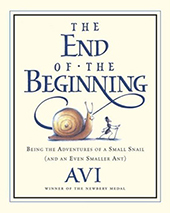
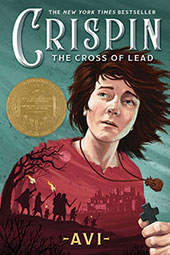
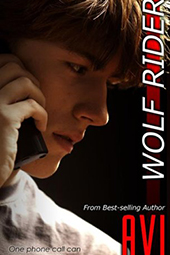
3 thoughts on “Editors”
Thanks, Avi. Great post.
Thank you always for your expert writing advice, Avi. I learn so much from you. This is timely since I will be working with an editor I admire on my second book in a triology, The Scepter of Set, in Miles Ellis Archaeology Adventures.
This column is chock full of :food for thought!” Thank you for all your insights about editors and the continual process of team editing.
Your fan, Beth Schmelzer, retired librarian and pre-published MG mystery writer